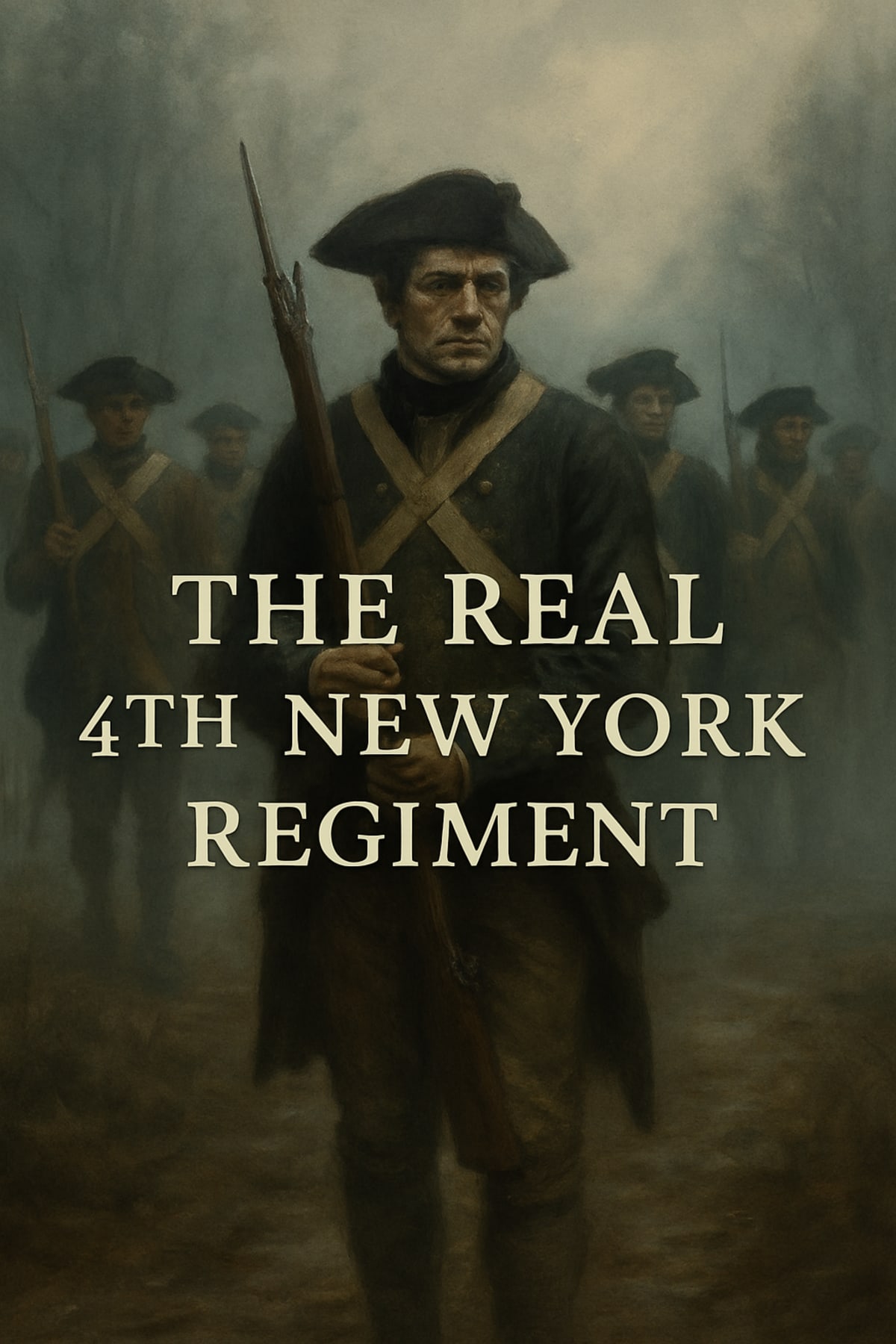When most people think of the American Revolution, they picture muskets firing at Bunker Hill, ragged soldiers marching through winter snow, and the triumphant roar at Yorktown. But tucked between the pages of history is a name few remember: The 4th New York Regiment.
I wanted to write about them not as faceless men in faded records, but as real people who fought — and, in my world, brushed against something darker than any king’s army.
Raised in a Time of Fire
The 4th New York was born in the spring of 1776, recruited from Albany and the surrounding counties. Farmers, craftsmen, fathers, and sons, men who left their homes to join Washington’s desperate fight against the greatest military force in the world.
They weren’t the glamour of the Revolution. They were the backbone, the ones who marched north into Canada, who held lines when supplies ran dry, who built the fragile hope of freedom plank by plank, shot by shot.
In reality, they suffered brutally: freezing winters in the Hudson Highlands, hunger gnawing while they built defenses. In 1777, some of them stood at Saratoga, where America’s fate pivoted. By 1781, so battered and thin, they were folded into the 2nd New York — their name erased, their sacrifices swallowed by time.
But What If That’s Not the Whole Story?
While I studied their history, one thought wouldn’t leave me: What if what we know isn’t everything? Wars are chaotic. People vanish. Legends are born. What if there was another layer — a battle fought not for land or taxes, but for reality itself?
That’s where The Last Patriot began.
I imagined the 4th New York not just as men fighting Britain, but as soldiers unknowingly standing between worlds. Places where the Veil — the thin skin separating the world we see from what we don’t — was beginning to tear. Places where ancient hunger stirred, feeding on blood and chaos: the Hollowing.
And among those men, one soldier survives when no one else should — Elias Mercer. Not by chance. Not by skill. But because something old and dangerous marked him.
Fact and Fiction Intertwined
I keep the regiment’s real suffering intact — the cold, the fear, the attrition — but thread through it the unseen war. The supply shortages? Maybe they weren’t just bad planning but subtle sabotage. The nameless fields where whole units vanished? Perhaps it wasn’t musket fire that swallowed them.
Even their quiet ending — being merged into the 2nd New York, erased — takes on meaning. Sometimes history doesn’t remember because history wasn’t allowed to.
Why It Matters
To me, the 4th New York embodies what I love about historical fantasy. These were ordinary men — uncelebrated, unknown — yet their struggle built a nation. And in my world, their fight becomes something far greater: a desperate stand to keep darkness from devouring the dawn of freedom.
Because the wars we read about aren’t always the only wars that were fought.
